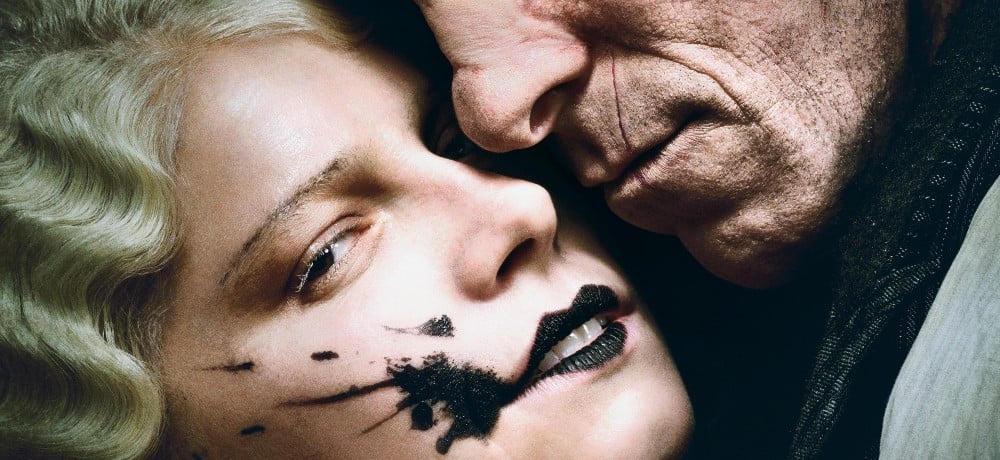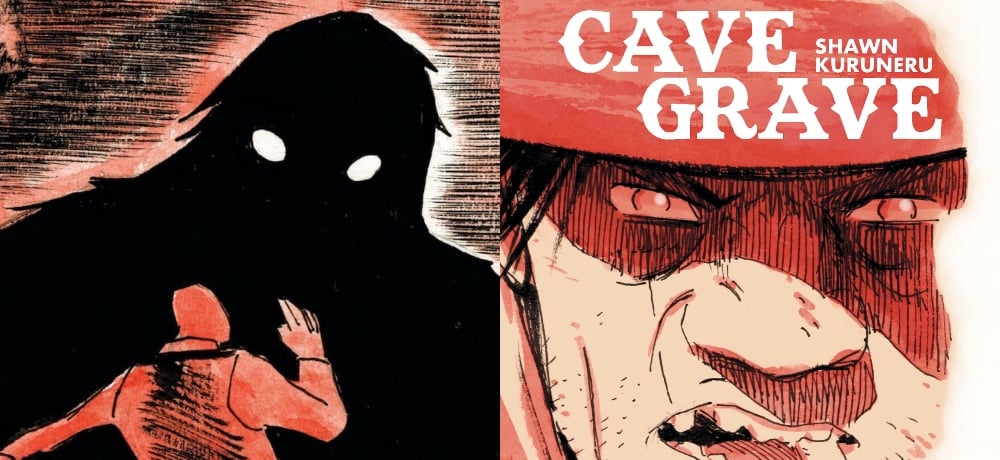





Over the weekend, filmmakers Jonathan Milott and Cary Murnion, the team behind the horror comedy Cooties, celebrated the world premiere of their action thriller Bushwick at the 2017 Sundance Film Festival. While in Park City, Daily Dead sat down with the duo to talk about the long road to getting Bushwick made, working with co-stars Dave Bautista and Brittany Snow, and more.
Check out our interview with Milott and Murnion below, and look for more coverage from Sundance 2017 right here on Daily Dead.
Great to speak with you, guys. I'd love to hear about taking that step from Cooties to Bushwick, and what it was with this story that you wanted to explore as filmmakers?
Cary Murnion: It's funny, because we had started working on Bushwick before Cooties. It was about six or seven years ago when the idea came to us, and we were about to film a sample scene for Bushwick because we do these long takes, and we wanted to show the producers that we could do it. But that's when Elijah Wood's company, SpectreVision, came to us for Cooties.
A lot of our previous work is more comedy. We'd done a short film called BOOB, which was kind of a horror comedy, so we were already known more for horror comedy, and that's why we got a chance for Cooties.
But Bushwick was something that we wanted to do to show that we could do something different. And that's why as soon as Cooties was done, we thought, "Let's back into Bushwick and let's make this happen." We don't want to be stuck doing only horror comedies because you could very easily do that, especially after Cooties.
Jonathan Milott: Because we work in the commercial world a lot as well, we do a lot of comedy work. They say, "Okay, you do good comedy work. That's what you're going to do from now on." In the end, what we want to do is more drama, more science fiction, more action. So that's why we specifically chose to do something that will potentially lead in that direction.
You mentioned the fact that this was something you'd been working on for years before Cooties. I would love to hear more about having that kind of patience, because a lot of people think, "Oh, I'm going to direct something, I'm going to make a movie, I'm going to write a script, and in a year the movie's going to be out." But it doesn't usually happen that way.
Cary Murnion: In this business, you have to be patient. We've learned that right off the bat with Cooties and with Bushwick that things don't happen quickly, but with both of these, once you cast something, that's when it really begins to happen. That's when it gets going quickly. And a lot of the lead-up to getting the cast is the prep.
And with Bushwick, we knew that it would be an odd story to do, to have a modern-day civil war happen in Brooklyn. We knew that was a tough starting point, so we had to prove ourselves that we could pull it off. We took a lot of time to make sure that we got the script right, that we got the locations that we wanted, and we got the kind of tone that we wanted to get in there.
So we would go out and film ourselves. We would go out before we even had the movie. We'd walk through the streets and we would find the locations we wanted to use. That's where we planned a lot beforehand. As a filmmaker, you can't feel like things are going to happen quickly because then you'll get frustrated and then you'll quit. We wanted to bring this all the way through. We started a long time ago.
Jonathan Milott: Yeah. It just comes down to patience no matter what, because even with Cooties, there was this, "Hurry up. It's going to happen," and then it was like, "Wait, it might not happen." Then last minute, the funding came through and then it was "hurry up" again. So there's a "hurry up and "wait" feeling with any production because you hear all the time that movies fall through at the last second, or the funding doesn't happen or that the star has to go do something else. It's just a matter of patience and persistence.
Cary Murnion: And believing in your concept, because there were a lot of times where people would say, "Let's do something else. Do some other movie that is maybe more in the comedy realm." And we thought, "No. We think this is a good story to tell," and now we're finding that it's coming at a time when it's even more relevant at this point than it was when we started this. If we did this movie six years ago, it would have been different. Right now, it's going to come out at a good time.
We're almost there in our country, and it's scary. Does that resonate with you guys differently now that we’ve seemed to slip a lot as a society over the last year or so?
Cary Murnion: Yeah, and that came up. We hope that people take this and see the downside of being divided. Before, we thought, "Let's show how horrible some of these thoughts are." But now we're just hoping that it shows how close we could become to this actually happening. Let's try not to let this happen. Let's try to stop this before we get to a point where people are so divided that they are actually killing each other over these types of issues.
Jonathan Milott: Even when you're a family and you fight about whatever, like what you're going to have for dinner that night, in the end, hopefully you're a family and you come back together, and that was just one of many arguments that families always have.
But as a country, at what point are you pushing it [too] far and it's not going to be just another one of the political arguments that we all have internally? When does it start going too far? When does it become violent? When does the argument about pizza become a fistfight and then goes too far that you can't come back and hug your brother the next day?
Is it getting to that point where we're going to start killing each other? Do we really want to go that far because of politics and some of the insanity that's happening right now? I don't know. But hopefully, at least a movie could maybe make you think about that.
Cary Murnion: A big inspiration for this movie was as a country, we’re always invading other places. We go in and we are trying to push out our ideas and we don't have a sense of what would happen if we got invaded ourselves. And not like Red Dawn, a movie where they have the Russians come in. What if it was our own people? What does it feel like when a mercenary contingency comes into a city and tries to take over? How would we feel if that happened? That's what some of the inspiration was, too, to show some of our wrongdoings that we've done in the past as a country and try to flip it on its head a little bit.
I'd love to hear about the casting because I’m a big fan of Dave’s and I’ve always enjoyed Brittany’s work, too.
Cary Murnion: Yeah, Brittany was amazing in this. We were big fans of hers. Not only from Pitch Perfect, but she's been in a lot of dramatic movies that haven't gotten enough attention. She’s known for these bigger movies, but she's done some really great dramatic movies, and we watched some of those and we saw the range of emotions that she can give. Because her character goes from highs to lows to middles, so as an actress, we saw she could do that. We needed someone who could bring that to this character.
Jonathan Milott: There's this scene where she does this entire range of emotions where I feel like it could be an acting class assignment. We had her do one continuous take without any edits, where she starts off in pain, goes to being traumatically sad, then the drugs kick in, because she's on painkillers, to she’s then scared because there are soldiers outside. She had to cycle through so many emotions in one take that it was like, "Take that acting class and try to do that, because it's hard to do."
Cary Murnion: We saw that in her in a bunch of her projects and thought, "Well, let's see if she can bring them all together into one." And she did. It's a very physical part. She bruised her rib on the fourth day of shooting. So for almost the whole film, she was going around with a brace on her rib. We were like, "Do you want a stunt double in there?" And she goes "No! I want to do it. I want to do this thing."
She was great. Dave, we knew him obviously from Guardians [of the Galaxy]. I'm not a wrestling nerd, so I didn't know him as a wrestler. I saw him from Guardians, and I thought he was being himself as Drax, and he was so good. And as it turns out, he’s not like Drax at all.
Jonathan Milott: He's got a good sense of humor. There's a sense of humor that you see come through in Drax.
Cary Murnion: Yeah, and Dave's super smart, and he has this super complex view of the world, and so he brought that to Stupe, the character in Bushwick. There’s also the physicality, too, but you'll see, again, what he does in this film is like nothing you've seen before from him in terms of the emotional toll that he takes throughout the film.
It was something that we talked about with him first through Skype. We were talking about the film and he had already read everything and he already had great suggestions about what the character should do. He had some great things he didn't like about it, which we loved to hear. We knew right away that he was going to make this film better. He had a great suggestion about the ending, too, where it made the movie a lot better than it could have been. So right off the bat, Dave was making this whole project better, so it was cool to have him on board.
*Above photos courtesy of the Sundance Institute. Milott's photo by Lyle Vincent.
———
In case you missed it, check out Heather's two-part Bushwick Sundance interview with Dave Bautista.